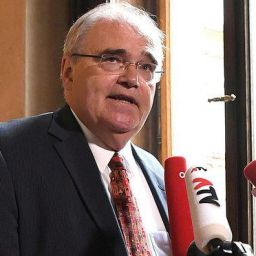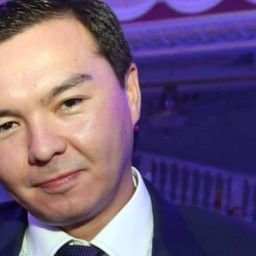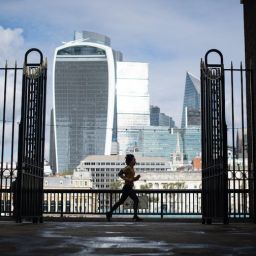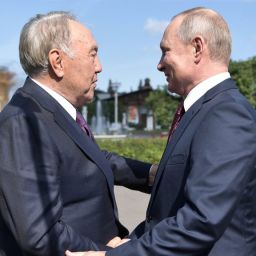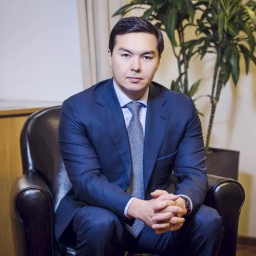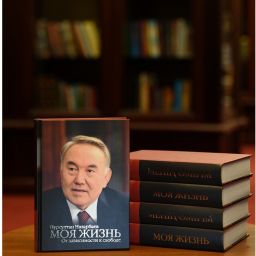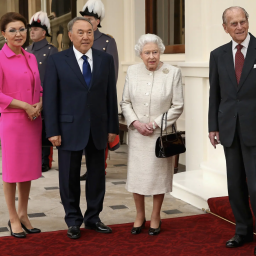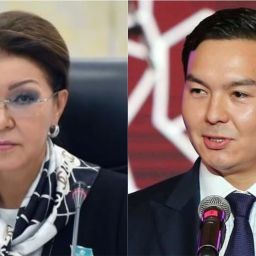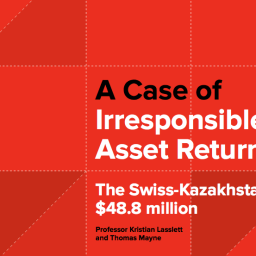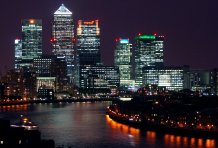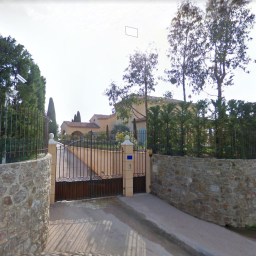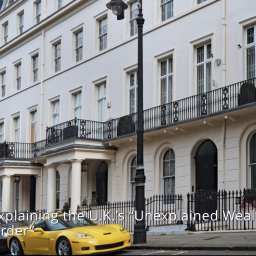Zamira Hajiyeva was the first big spender to be slapped with an Unexplained Wealth Order. Now the Supreme Court has rejected her attempt to overturn it. What does this mean for those looking to splash major cash in London? Chris Stokel-Walker’s article from the September issue of Tatler explains
Chris Stokel-Walker, Tatler, 22 December 2020
Zamira Hajiyeva had expensive tastes. That much was clear to Harrods. Like many of the ultra-high-net-worth individuals who saunter into the Knightsbridge department store, the 57-year-old Azerbaijani expatriate spent freely – in her case, very freely, racking up £16.3 million in purchases at the store between 2006 and 2016. She had a particular weakness for Cartier and Boucheron: one Sunday in November 2009, she handed over a credit card to buy a £48,600 Cartier item, then she was back 12 days later for three pieces of Boucheron jewellery worth a combined £121,000. It wasn’t just jewels that caught her eye – one hungry day in 2014 she spent £2,000 on cold meats alone.
She had, it seemed, access to multiple sources of money. She bought items on at least 54 credit cards – including 35 American Express, Mastercard and Visa cards issued by the bank of which her husband, Jahangir Hajiyev, was chairman – as well as logging the purchases on the department store’s loyalty-card scheme. Not one to scorn a bargain, Hajiyeva qualified for the Harrods Black Tier rewards card (reserved for customers who spend more than £10,000 a year), granting her gift boxes, discounts and complimentary drinks every time she walked through the doors.
But while Harrods was delighted with her custom, her expenditure there was a mere bagatelle. Just weeks after her 2009 splurge on jewellery, she put down a £4 million deposit on an £11.5 million house on Walton Street in Knightsbridge – the purchase was made through a company based in the British Virgin Islands. She then also bought the Mill Ride Golf & Country Club in Ascot for a further £10.5 million. Yet…
There was a big yet. Where was the money coming from? Her husband has reported to British courts that he earned less than $71,000 a year in his job as a bank executive – which may have surprised the Azerbaijani authorities, who in October 2016 jailed him for 15 years for fraud, embezzlement and misappropriation of £2.2 billion of public funds. And Hajiyeva claims to have been a full-time mother since 1998.
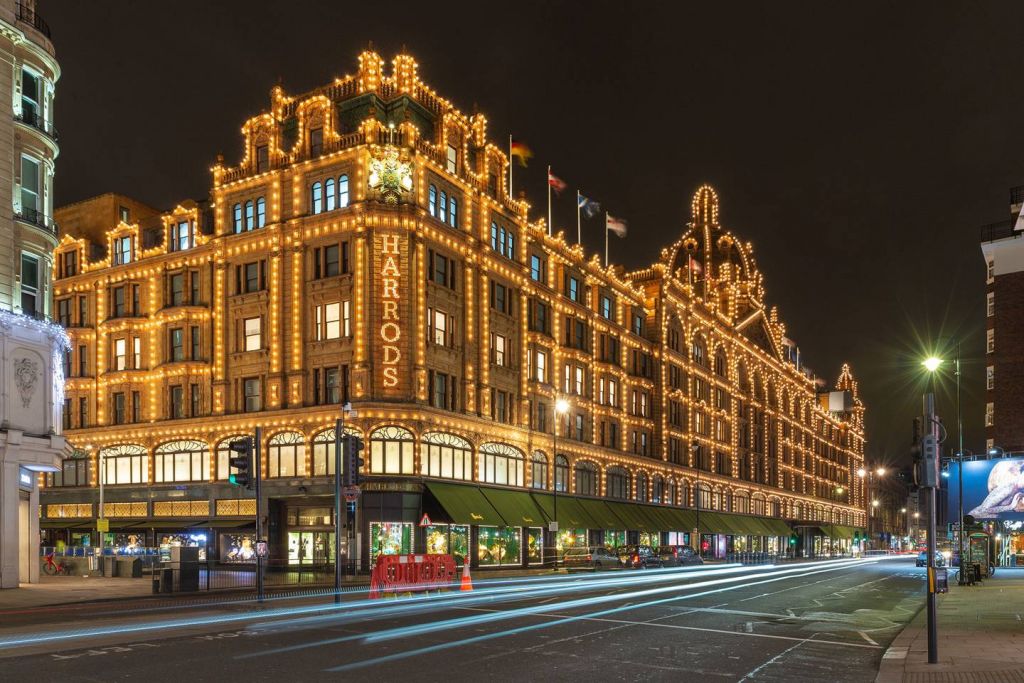
For the National Crime Agency (NCA), it was just one example of her ‘unexplained wealth’ – and one reason why last year Hajiyeva became the first recipient of an Unexplained Wealth Order (UWO) – a new legal tool the NCA can employ if it suspects someone living in the UK of buying assets using income illicitly gained. Serve one of these and, if the courts agree with the NCA, a freeze can be put on those assets, rendering ill-gotten gains unusable. On 21 December, the Supreme Court rejected Hajiyeva’s attempt to overturn her UWO and unless she is able to legitimately explain how she became rich, the courts can fast-track the seizure of her flash London home without investigators having to even prove a crime.
Advertisement
This is a game-changer. These ‘McMafia’ orders – named after the hit BBC series about Russian corruption in London – turn the biggest issue faced by anti-corruption investigators on its head. Where previously the NCA had to prove malfeasance on the part of those suspected, now an order compels those subject to it to disprove suspicions.
‘It’s a huge change that tips the scales towards justice and against kleptocrats, which never was true in the past,’ says Bill Browder, co-founder of what was once the largest hedge fund operating in Russia, and now one of the world’s most aggressive anti-corruption campaigners. He’s also the main man behind the UK’s new Magnitsky laws, which make human rights violators face financial sanctions here, as well as being barred from entry to the country. But the UWOs are, he adds, ‘revolutionary in their concept’.
‘McMafia’ banker’s wife could lose her £15M Knightsbridge home after court defeat
And they’re needed. ‘There is a lot of illicit money slushing around London, and we need to know where it’s coming from,’ explains Prem Sikka, emeritus professor of accounting at the University of Essex, and co-author of The Accountants’ Laundromat, a book detailing the enormous scale of money laundering in the UK. By the very nature of its murky origins, hard numbers on illicit money are difficult to come by, but it’s estimated that anywhere between 2.5 and 5 per cent of the $86 trillion global gross domestic product is illicit. You only need to cast half a jaundiced eye on the despots’ wives swanning along Sloane Street, laden with shopping bags, to guess that something is up. ‘Every dictator and kleptocrat wants to have a place here,’ says Browder, scornfully.
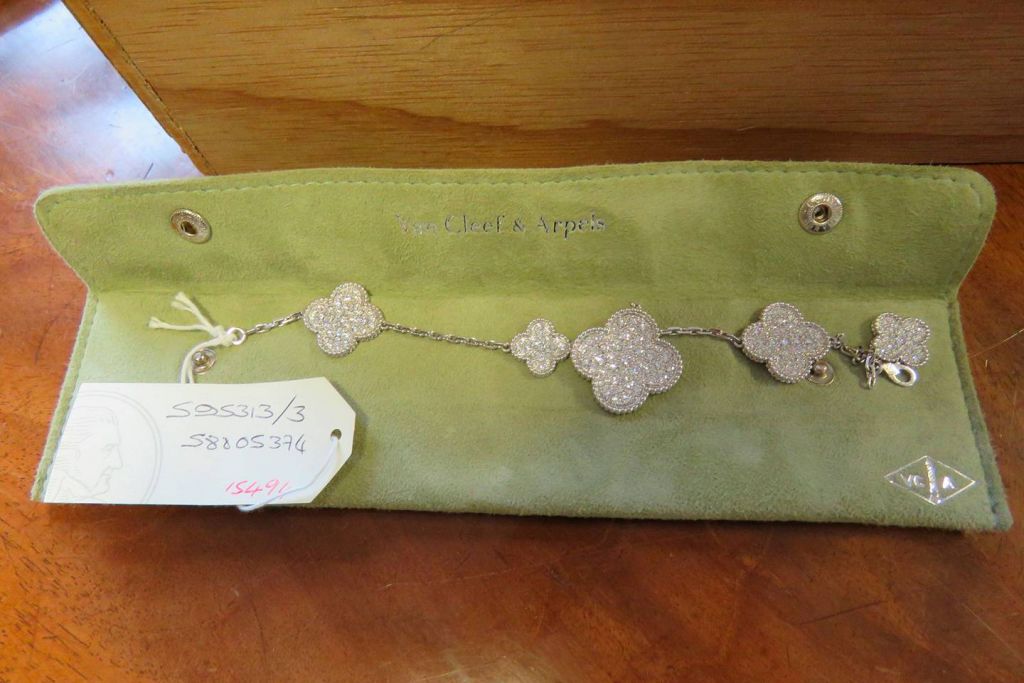
London is loved by those looking to launder money for any number of reasons. For developing-world despots or oligarchs on the make, the excellent fee-paying schools, luxury shopping and location at the centre of the financial universe have made the city an obvious choice. The UK’s proclivity to welcoming money with open arms – which critics say extends to looking the other way when it comes to where cash has come from – is a bonus. ‘I’ve been at the coalface of money-laundering investigations all over the world, and the UK is one of the weakest enforcement regimes,’ says Browder.
That lame-duck enforcement, coupled with a network of shadowy bankers, estate agents and lawyers, has long made the UK a home for the families of dictators and out-of-favour kleptocrats. But their life is getting harder. In May 2019, Aniseh Chawkat, then 22, the fashion-conscious niece of the Syrian dictator Bashar al-Assad, was studying for an MA in London.
Her studies were funded by 56 unexplained cash deposits into her bank account that together totalled more than £150,000 – then the NCA swooped, and her account was frozen. (Chawkat maintained she had ‘no knowledge or suspicion’ that payments into her account breached sanctions.)
Luca Filat, the 25-year-old son of the former prime minister of Moldova, Vladimir Filat (who, in turn, was sentenced to nine years for his role in the theft of $1 billion in his home country), was studying at City University in London. He’d paid £390,000 up front to lease a penthouse flat in Cadogan Square for a year, bought a £200,000 Bentley Bentayga from a Mayfair dealership and, perhaps unwisely, was photographed partying, champagne bottle in hand, in St Tropez. Filat was hit with three bank forfeiture orders last February. He appealed, producing documents showing that wealthy friends had lent him the money, but the court order was upheld.
Meet the Crazy Rich Russians who grew up in London
But the NCA’s task is not easy. Unsurprisingly, when it comes to big money, some aren’t keen to be parted from it. For instance, 221b Baker Street is known to most as the home of Sherlock Holmes, but the identity of its owner today is a mystery even the fictional detective would struggle to solve. The NCA claims it was bought with money accumulated by Rakhat Aliyev, a senior Kazakh official who died in prison in Austria in 2015. The agency claims that Aliyev was ‘part of a corrupt inner circle in the Kazakh regime who enriched himself at public expense’; he was awaiting trial on murder charges when he died.
While 221b Baker Street hasn’t been subject to a UWO, three other Aliyev-connected properties worth an estimated £80 million were seized in May 2019. They were, the NCA claimed, the property of holding companies owned by Dariga Nazarbayeva and Nurali Aliyev, respectively the ex-wife and son of Aliyev – and, as it happened, the daughter and grandson of Nursultan Nazarbayev, the dictator running Kazakhstan until 2019. One of the properties, a £9.3 million north London home beside Highgate Golf Club, was given as an address at Harrods for Aliyev’s ex-wife. But Dariga Nazarbayeva and Nurali Aliyev strongly deny the NCA’s claims of any wrongdoing. The progress of their UWO goes from court to court.
The NCA is currently pursuing four Unexplained Wealth Orders, but has more than 100 potential cases on its books. Tip-offs that trigger an investigation come from various sources: some arrive into NCA inboxes and intrays from wronged staff, worried neighbours or angered competitors. Some alerts come in from banks, who can pass on intelligence and material that may allow the agency to begin work on obtaining an Unexplained Wealth Order against an individual. Mainly, it’s anti-corruption NGOs liaising with the agency about their research and NCA agents proactively searching for cases using open-source material.
They’re focused on what they call ‘politically exposed persons’ – people in high office, or in government, or who have some control of a state asset, and have allegedly embezzled funds that end up in the UK. It all sounds good: after years of letting fraudsters and despots wash their money through our financial system, authorities have been given a laser-targeted weapon with which to clean up the capital. But Browder believes the NCA’s 30 to 40 investigators are misplacing their efforts. He thinks the orders meted out thus far have been mis-used, not to pursue kleptocrats, ‘but basically to do the mopping- up operations of dictators against their enemies in the UK’.
The NCA, of course, doesn’t agree. The focus so far on exiled enemies of unsavoury characters abroad is not conscious, says Andy Lewis, head of asset denial at the NCA – and is based on the likelihood of success in the courts. ‘We only have limited resources, like any law-enforcement agency,’ he says. ‘We have to make sure we target them at those that will have the biggest impact; the biggest bang for our buck.’
Not a single UWO case has yet reached a conclusion, with courts alternately finding in favour of the NCA, then, on appeal, finding for people whose assets the agency is seeking to seize. It’s a seemingly endless process: high-powered lawyers are employed; points of law raised; complex chains of financial transaction examined. What politicians hoped was a targeted weapon against money laundering has been turned into a game of whack-a-mole, but the NCA is determined to bring to justice people it perceives as doing wrong.
Zamira Hajiyeva’s case has gone the furthest. It was on 27 February 2018 that the Hon Mr Justice Supperstone agreed that the NCA could issue an Unexplained Wealth Order against her. Five months later, the same High Court judge was hearing an appeal by Hajiyeva’s lawyers to discharge the order, which ultimately failed. But her lawyers took the case to the Court of Appeal in December 2019, saying that the order was based on unsubstantiated claims about her husband benefiting from political corruption, and that their client denied all allegations of wrongdoing. Hajiyeva lost that appeal in February 2020. But her team continues to deny that she has done anything wrong, and is appealing to the Supreme Court (the Supreme Court announced it upheld its ruling on 21 December). In the meantime, the NCA has alleged that Hajiyeva’s daughter Leyla Mahmudova took £400,000-worth of jewellery to Christie’s for valuation, which the NCA seized, as well as an 8.9-carat ‘emerald-cut diamond’ Cartier ring that was valued at £1.2 million.
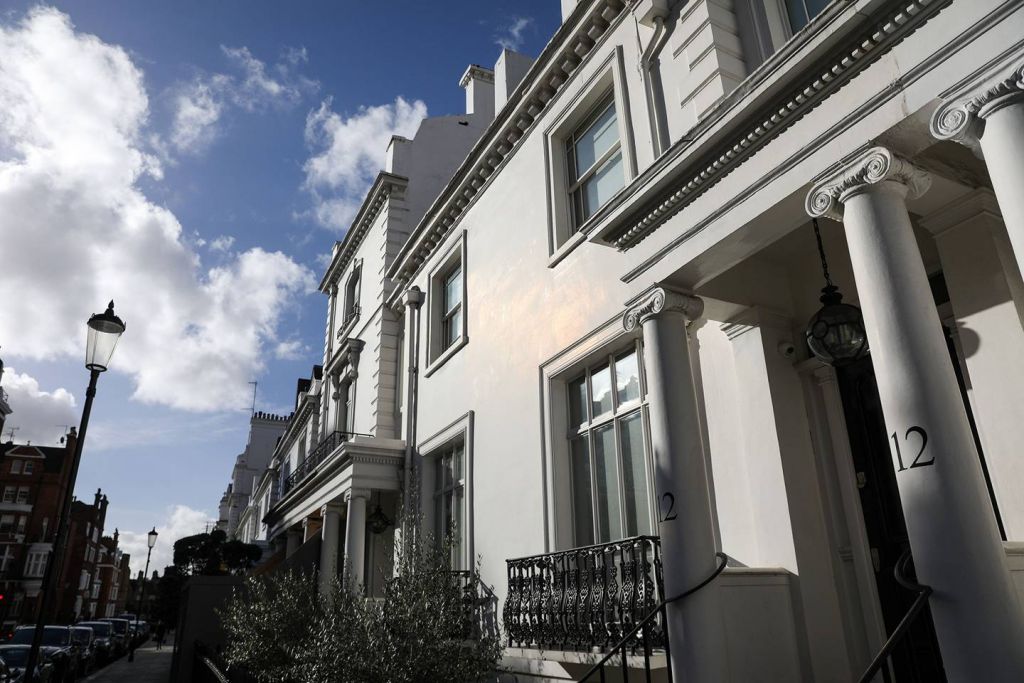
CZ Guest’s socialite daughter appears in new book ‘Sex and Vanity’
Because the cases are ongoing, the NCA is unwilling to talk about specific individuals; Hajiyeva did not respond to an email sent to her lawyers. But, said Lewis, speaking generally, ‘In the cases we deal with, there’s an assumption they’ll be fighting until the bitter end – to the Supreme Court, potentially – to say, “This is a legitimate asset.”’
The NCA will also fight all the way, for two reasons. ‘First, it’s to take away assets from criminals, and second, as a deterrent effect to stop those that want to invest in the UK by buying property with criminal money,’ says Lewis. He wants ‘to make the UK a hostile jurisdiction for them to invest their ill-gotten gains’. The fight goes on. And Harrods is as alluring, and expensive, as ever.
This is an edited version of an article that ran in the September 2020 issue of Tatler.
